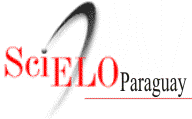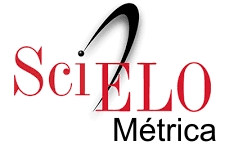SNEPE 2018: La eficacia docente en matemáticas
DOI:
https://doi.org/10.18004/ucsa/2409-8752/2023.010.01.003Palabras clave:
Conocimiento especializado, profesor de matemáticas, eficacia docenteResumen
La educación matemática escolar, se da por sentado debe ser impartida por docentes especializados en la materia. Esta investigación encontró que, en lo que respecta a profesores de matemáticas del 3° grado de la EEB en el Paraguay no hay diferencias en cuanto correlación entre mayor nivel educativo y/o actualización docente y mayores y mejores resultados a nivel porcentual en los niveles superiores III y IV, pues todas las categorías del profesorado tienen un índice del 74% de inefectividad (sitúan a sus estudiantes en los niveles I y II)en cuanto objetivos de logros de competencia del estudiantado.
Descargas
Citas
Ball, D. L., Thames, M. H., y Phelps, G. (2008). Content knowledge for teaching: What makes it special? Journal of Teacher Education, 59(5): 389–407.
Carrillo-Yañez, J., Climent, N., Montes, M., Contreras, L. C., Flores-Medrano, E., Escudero-Ávila, y D., Munoz-Catalán, M. C. (2018). The mathematics teacher’s specialized knowledge (MTSK) model. Research in Mathematics Education, 20(3): 236–253.
Clarke, D., y Hollingsworth, H. (2002). Elaborating a model of teacher professional growth, Teaching and Teacher Education, 18(8): 947–967.
Hoover, M., Mosvold, R., Ball, D. L., y Lai, Y. (2016). Making progress on mathematical knowledge for teaching. The Mathematics Enthusiast, 13(1–2): 3–34.
Lindvall, Jannika (2017). Critical features and impacts of mathematics teacher professional development programs, Mälardalen University Press Dissertations No. 249,
Sweden. MEC-SNEPE (2018). Factores asociados al rendimiento SNEPE 2015. Asunción: MEC. Ministerio de Educación y Ciencias (2020). Resultados Evaluación SNEPE 2018. https://www.observatorio.org.py/uploads/uploader/file/106/Presentaci%C3%B3nResultadosSNEPE2018.pdf
Dahlgren, M., Mosvold, R. y Mark Hoover (2019), Teacher educators’ understanding of mathematical knowledge for teaching. Eleventh Congress of the European Society for Research in Mathematics Education, Utrecht University, Feb 2019, Utrecht, Netherlands.
Shulman, L. S. (1986). Those who understand: Knowledge growth in teaching Educational Researcher, 15(2): 4–14.
Schwarz B., Kaiser G. (2019). The Professional Development of Mathematics Teachers. In: Kaiser G., Presmeg N. (eds) Compendium for Early Career Researchers in Mathematics Education. ICME-13 Monographs. Springer, Cham. Recuperado de: https://doi.org/10.1007/978-3-030-15636-7_15
Superfine, A. C., y Li, W. (2014). Exploring the mathematical knowledge needed for teaching teachers. Journal of Teacher Education, 65(4): 303–314.
Thompson, P. W. (2015). Researching mathematical meanings for teaching. In L. D. English y D. Kirshner (Eds.), Third handbook of international research in mathematics education (pp. 435– 461). New York: Taylor & Francis.
Yasemin Copur-Gencturk, Jessica Rodrigues, (2021), Content-specific noticing: A large-scale survey of mathematics teachers’ noticing, Teaching and Teacher Education, Volume 101. Recuperado de: https://doi.org/10.1016/j.tate.2021.103320














